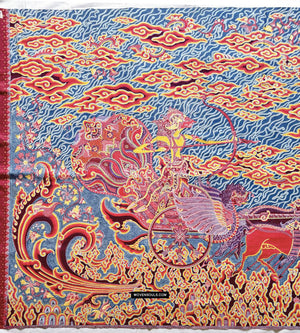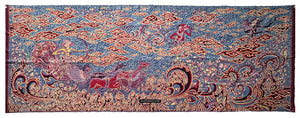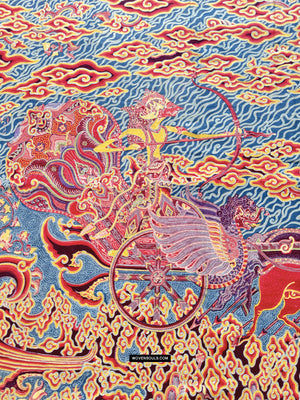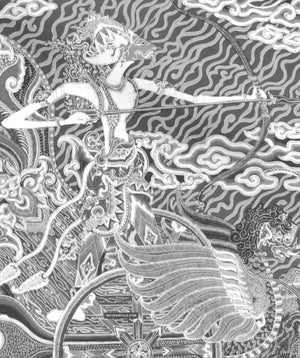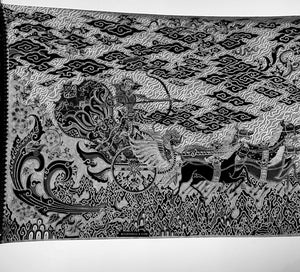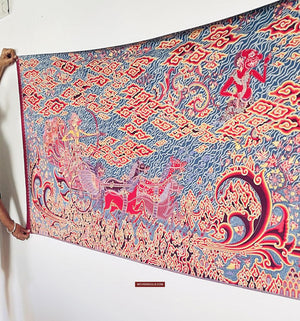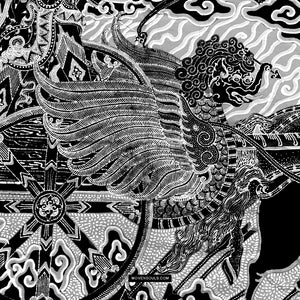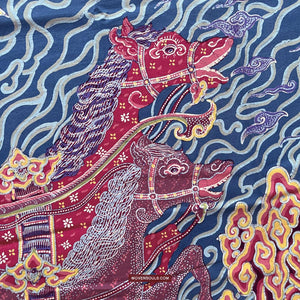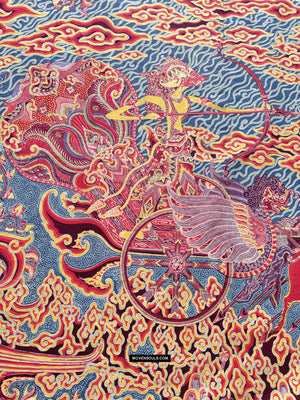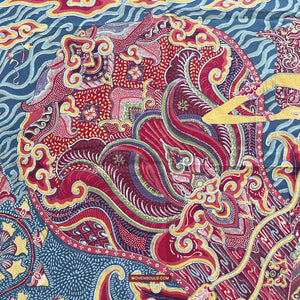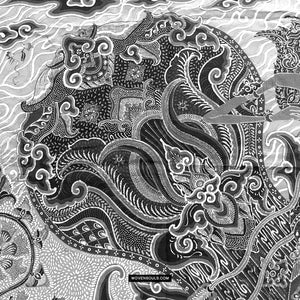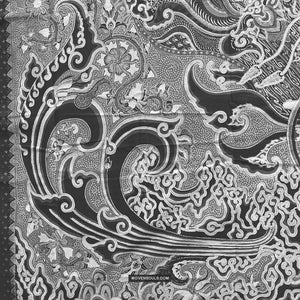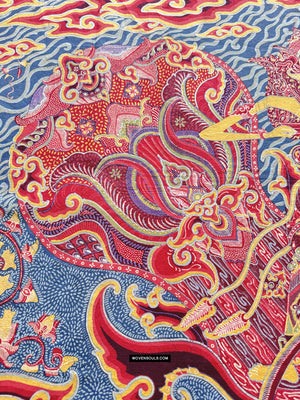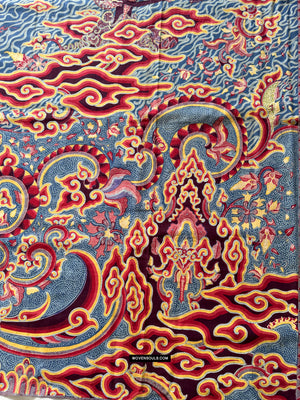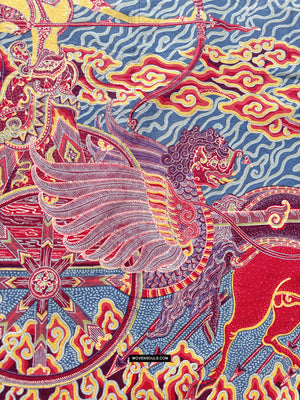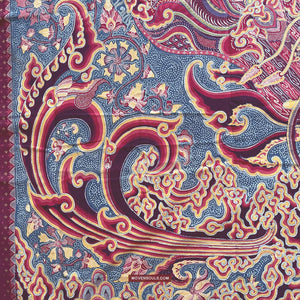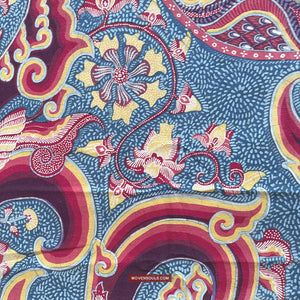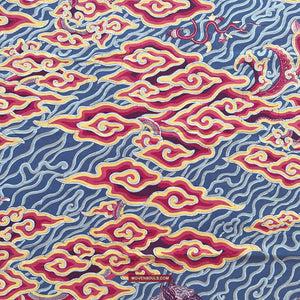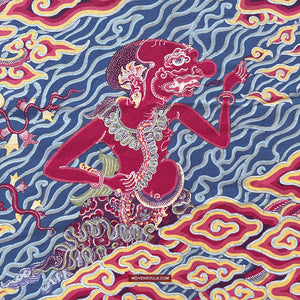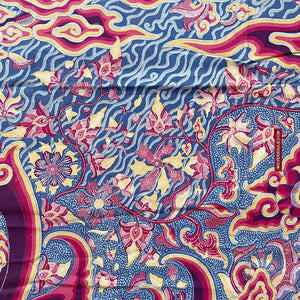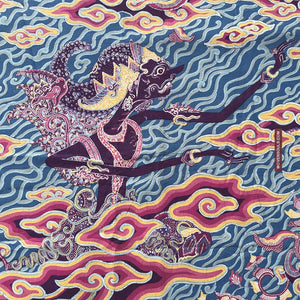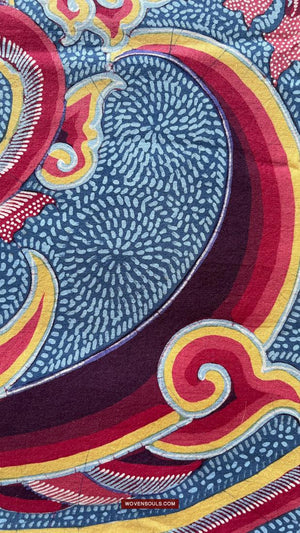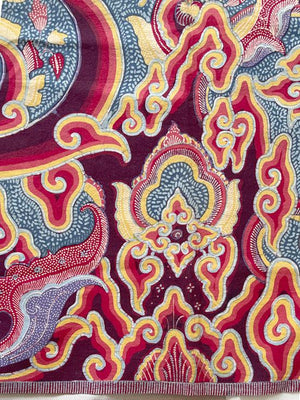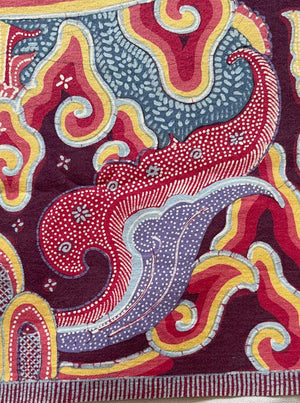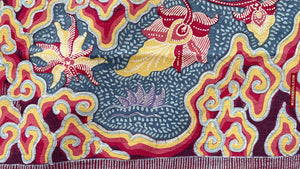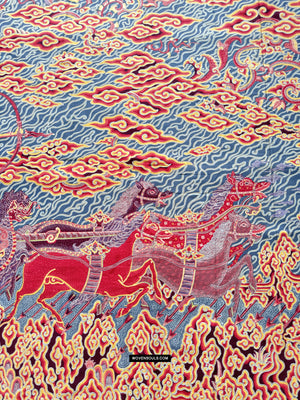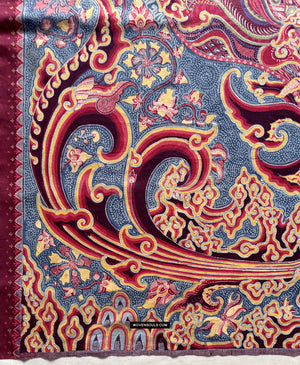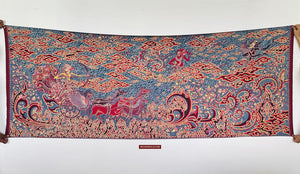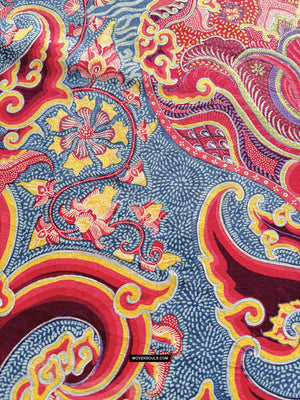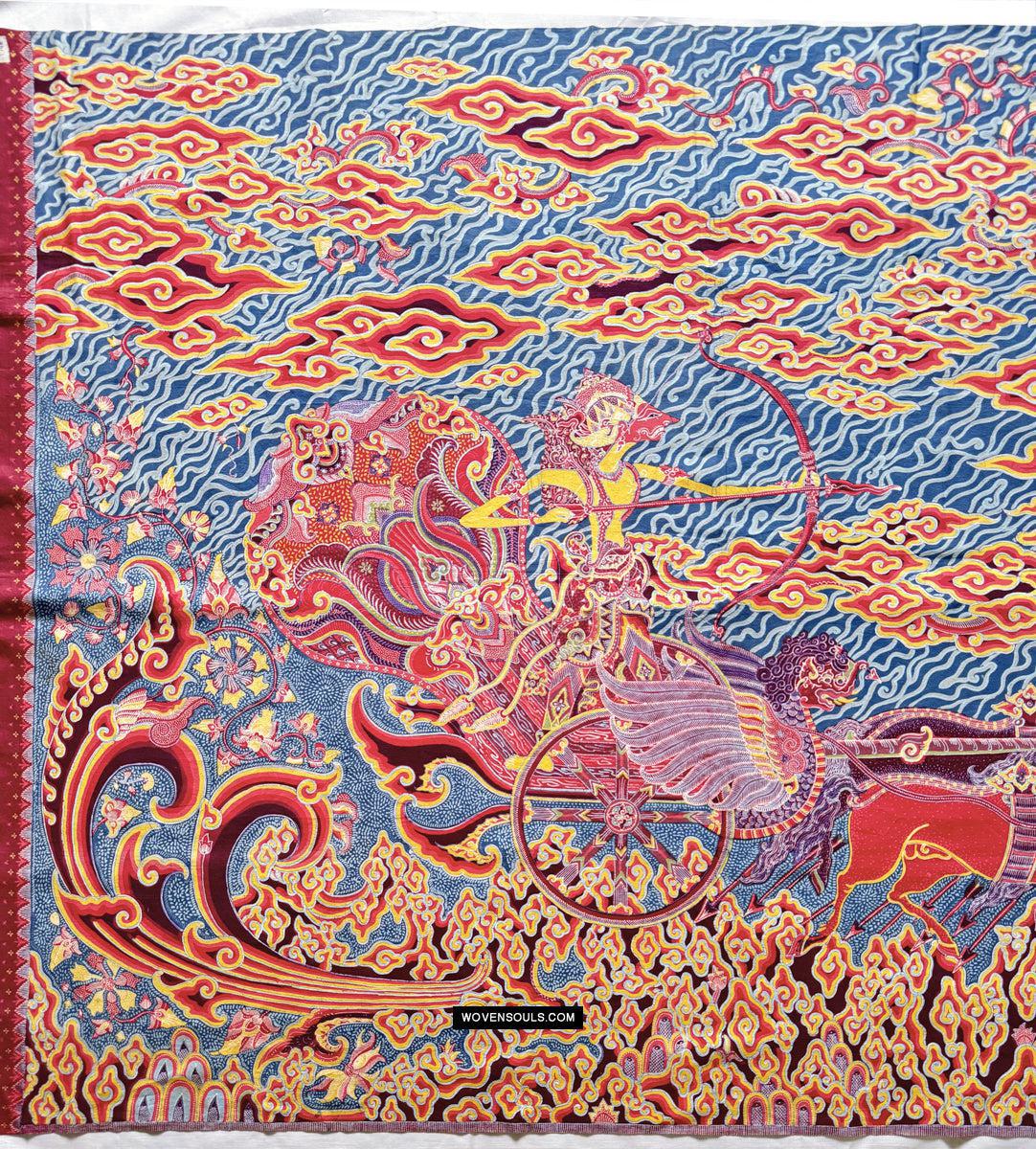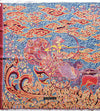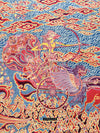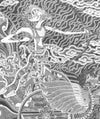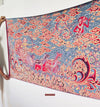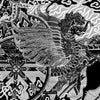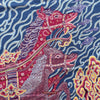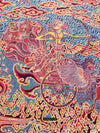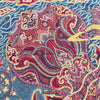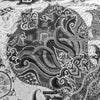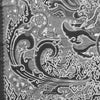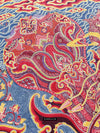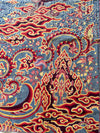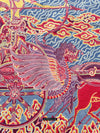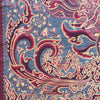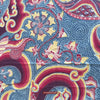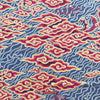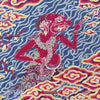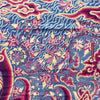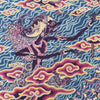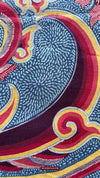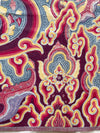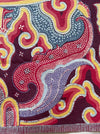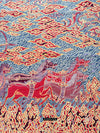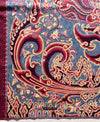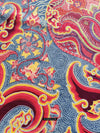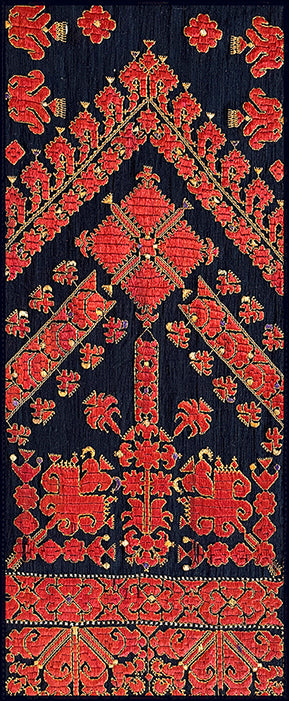Your Cart is Empty
1746 Hindu Scene in Cirebon Javanese Batik Tulis Art
Mahabharata Hindu Scene in Cirebon Javanese Batik Tulis Art
This is a scene from the Mahabharat in which the Pandavas and Kauravas engage in a devastating war. The fight is for righteousness and has lessons in duty, alliances and righteous living.
In this artwork, Arjun, one of the 5 Pandavas, rides his chariot during the war. In times of a moral crisis facing Arjun as he rides his chariot, Lord Krishna, guides him through to the path of duty and righteousness.
* Photographing this piece has been a challenge - so various tones can be seen in the photos. The ones with the hands holding the piece give a context and are closest to the real color.
A fabulous artwork depicting a scene from the Mahabharata - of Arjun, one of the 5 Pandavas in a chariot with a bow & arrow.
The amazing aesthetic is the work of Late Pak Tomik.
Note the 4 horses. Note the harmonious curly strokes all over. Note the micro dots on the horses. Note the elaborate dress of Arjuna. And the gorgeous chariot tail!
The depiction of the clouds (mega mendung) is typical of the batiks of Cirebon in Java, Indonesia. Also seen in the bottom right corner is the 'wadasan' motif - representing a broken coral rock - an ornamental architecttural feature seen only in Sunyaragi Cirebon in Indonesia.
This fabulous work has been hand-drawn as a wall artwork. This is art for the sake of art into which the master has poured out his creativity and paid great attention to the details and to the balance of the visual.
A legendary work using chanting 0, the skill of Pak Tomik can't be matched by the hands of most modern pembatiks in Trusmi Batik village.
Size: 270cm x 105cm
Perfect as a wall artwork
Made in the 1970s-1990s
***
This item has spent a lifetime being used for the purpose of its creation with the original artist/user. Signs of this life lived heartily may be present on the piece in the form of stains, thread loss, loose threads, holes, tears, color run and other imperfections. Therefore the condition must be assumed to be “not” perfect. More photos of such imperfections will be provided on request.
***
.
Like it? Share it with friends on Facebook!
.......................................................................................................................






























